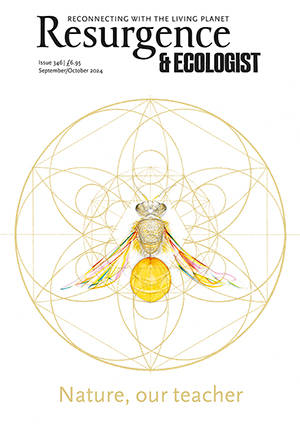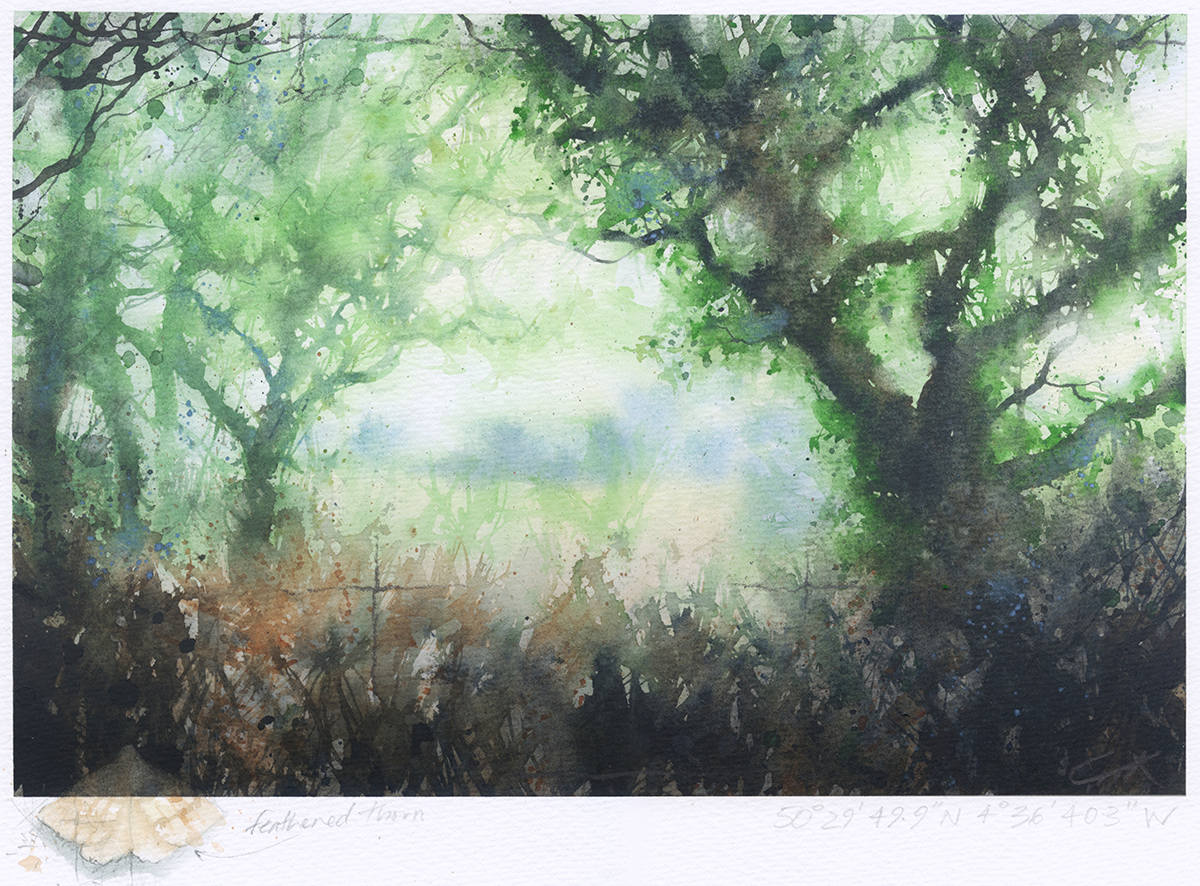Illuminating, thoughtful and deeply knowledgeable, Nature’s Ghosts is the debut book from Sophie Yeo, the founder of Inkcap Journal. It is a beautifully written reflection on humans’ impact on the natural world and the scope for its restoration and perhaps even redemption. I found it moving and insightful on every page. The sheer quality of the writing is at times quite wonderful, with echoes of Rowan Williams and Oliver Rackham.
An early statement of Yeo’s intention for the book is a helpful guide to what follows: “I may as well say now that I do not believe that we can, or should, attempt to rewind the world to a specific point in time, for reasons that will become apparent. But that does not mean that we should treat the past as irrelevant. Because it is equally clear to me that the ecosystems of 10,000, 1,000, or even 100 years ago were wilder, richer and more enchanting than that which passes as Nature today. At a time of unprecedented ecological collapse, it is our duty to restore something of that lost world. By peering into the annals of the Earth, we can learn how to begin.”
So begins a fascinating series of chapters encompassing diverse landscapes and stories from across the world, all describing encounters with beautiful places and the people who live within them, care for them, and do their best to help them flourish. The focus throughout is how a deep understanding of the story of landscapes and the communities that inhabit them can give vital clues to how we might best manage and restore them in the future. Each chapter draws the reader into a voyage of discovery, drawing on academic literature, personal encounters and vivid storytelling.
Several of the chapters address the protection and restoration of forested landscapes, with Yeo noting: “When Europeans mourn the loss of the world’s tropical rainforests, they do so from within the graveyards of their own devastated woodlands.” She observes, too, that “the Earth has a memory. Past harms haunt us for longer than ever thought possible. These memories are not friendly ghosts but restless poltergeists – and the forests especially are full of them.”
Towards the end of the book, a chapter addresses the loss of Indigenous peoples’ rights and practices, which over millennia protected and carefully managed critically important ecosystems. “For so many people across the world, the destruction of the land is more than vandalism: it is desecration. Sacred land has been called a ‘shadow conservation network’ because of the rich ecosystems that have emerged in the absence of human exploitation,” Yeo writes, concluding: “Nature thrives in the presence of the gods – but only so long as it is remains in the hands of those who revere them.”
While Yeo is profoundly truthful in describing all that has been lost, Nature’s Ghosts also gives grounds for cautious hope. It focuses, too, on the sheer moral obligation to act in pursuit of the recovery and restoration of Nature, including through acquiring a deep understanding of the landscapes of the past. “By looking to the past, we can reinvigorate our relationship with the natural world,” she writes. The task before us is to “take a more ancient perspective of the Earth: not as a distinct and distant entity, but as something woven through our being. A source of food and also wonder. Of money and also magic. Of materials and also identity.”
But this in turn means “reconceiving of our place in the natural order, so that we are not just admirers or even protectors of Nature, but also participants in its cycles and processes: as the mammals we really are, or as proxies for the megafauna we wiped out; as managers, as foragers and fishers, or even as storytellers who might translate the old narratives of the land into the language of the modern day. There remains a place for us in the wild, if we can only rewild ourselves.”
Nature’s Ghosts is a gift to the canon and deserves the widest possible audience. I am sure many will find inspir-ation and solace in it.
Nature’s Ghosts: The World We Lost and How to Bring It Back by Sophie Yeo. HarperNorth, 2024. ISBN: 9780008474126








